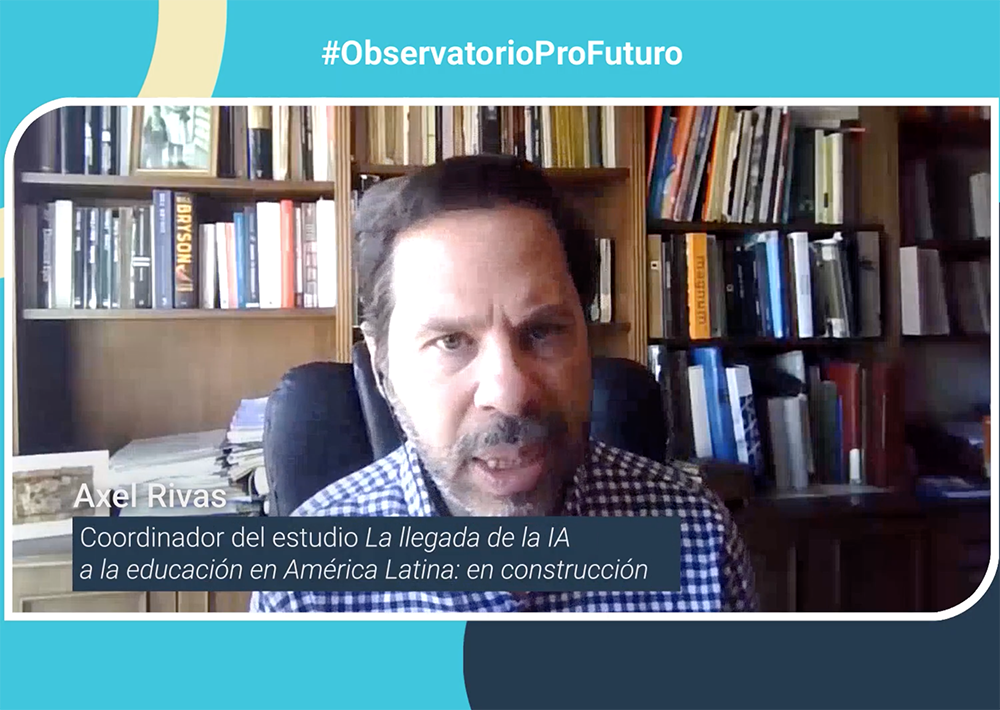In the last PISA report, the results of Spanish and Latin American students in maths left much to be desired. In Spain, the average score was 483 points, below the OECD average. Among the Latin American countries, Chile tops the list with 438 points. The Dominican Republic was in last place with 334 points. On the other side of the coin are Asian students; in China, Singapore and Hong Kong, the percentage of students with excellent results is 44%, 37% and 29%, respectively (compared to 4% in Spain). The question is: are the students the only ones responsible for these results or should teachers and a system that does not train and select them properly also share the responsibility?
Teacher training matters
The enormous importance of the quality of teacher training on their students’ results has been highlighted in numerous research studies. Even back as far as 1966, the controversial Coleman Report concluded, among other things, that differences between teachers in terms of their studies, salary, motivation, attitudes, etc., influenced student learning. More recently, the “Aportes para la Enseñanza de la Matemática” (Contributions to Teaching Mathematics) Report, by the OREALC/UNESCO Santiago, highlights that there is a broad consensus that ratifies the teacher as the most important agent linked to the achievement of student learning.
The didactics of mathematics and the tools or resources that can support it form the focal point of student learning. But what is the situation of maths teachers and how does this relate to the results obtained by their students? In 2001, in its General Conference, UNESCO warned that there was a widespread lack of science teachers at all levels of education.
Teachers with little training and no specialization in Mathematics
Inadequate teacher training in some countries may be having a direct impact on pupils, resulting in them not acquiring the solid foundations they need to attain in primary education and losing interest in the subject because they are unable to solve the problems it poses in later grades. Although this article focuses on Spain and some countries in Latin America and the Caribbean, the lack of teacher training is a fairly widespread problem and therefore some of its conclusions could be applied to all of these places.
In Spain, for example, several experts have recently raised their voices to point out that teacher training is responsible for the poor results obtained by students in maths. For example, Fernando Blasco, professor of Applied Mathematics at the Polytechnic University of Madrid and President of the Dissemination Committee of the Spanish Royal Mathematical Society, put it this way in an interview with the Spanish newspaper, 20 minutos: “Those who are least to blame are the students, especially primary school ones, who have only spent a short time in the system, which is clearly failing. I often take part in teacher training courses and lots of them, in general, demand training in Mathematics. Normally, lots of students arriving at Education faculties have, in a way, been running away from Mathematics since ESO and Bachillerato (compulsory secondary education and optional higher secondary education), and then they have to teach it. I therefore think that the fundamental problem here is teacher training.”
Poor and unskilled training of primary school teachers is one of the root causes of this problem, explained Pedro Ramos Alonso, professor of Mathematics in the Faculty of Education at the University of Alcalá to the ABC newspaper: “More than two thirds of the teachers opted for degrees in Arts. Students (and future teachers) lack mathematics training because they stopped studying this subject in secondary school and, moreover, in the teacher training programmes we don’t have enough time to train them in this subject.”
In the report, El desafío de las vocaciones STEM (The challenge of STEM vocations), published by the Spanish Association for Digitalisation (DigitalES), shows that only 3% of the teachers surveyed are specialised in Mathematics, Technology or ICT. 86% of the teachers surveyed stated that they did not have the opportunity to specialise in any of these areas; 59% felt that they had not acquired sufficient knowledge during their studies and 72% consider that they hadn’t learnt how to teach this subject to students.

Source: El desafío de las vocaciones STEM (DigitalES)
According to a study by the Inter-American Development Bank, the general public in Latin America and the Caribbean is aware of the low level of students. However, they are less aware of the low quality of instruction these students receive. Thus, although the majority of teachers in the region have the level of training required by national education systems, evidence suggests that many teachers are not adequately trained and that they offer very few opportunities for their students to learn mathematics skills.
The same study examined a number of research studies that looked at teachers’ knowledge in various countries in the region. The results were disheartening: in Peru, a study found uncorrected or poorly corrected errors; research carried out in Argentina, Colombia, Costa Rica, El Salvador, Guatemala, Peru, Mexico and Uruguay found extremely weak assessment practices; in Panama and Costa Rica, a comparative study involving class recordings revealed significant deficiencies in teachers with regard both mathematics proficiency and pedagogy; in the Dominican Republic, an evaluation revealed that teachers exhibited extraordinary weaknesses in their knowledge of the content (only half of the fourth grade teachers in the provinces of Santiago and Santo Domingo knew that the common fraction 1/2 is greater than 1/3); and a survey in Argentina found that half of 153 teachers were unable to define the basic mathematical concepts that fourth graders have to learn.
In Chile, the study ¿Cuánto saben de matemática los docentes que la enseñan y cómo se relaciona ese saber con sus prácticas de enseñanza? (How much do teachers who teach mathematics know about it and how does this knowledge relate to their teaching practices?) analysed the knowledge, didactics and skills of 4,600 of the country’s best teachers and concluded that “a significant percentage of teachers are unable to demonstrate a deep understanding of mathematical concepts in their classes.”
What happens in the countries which have achieved the best PISA results, such as Estonia or Singapore? In Estonia, Tallinn University has a specialised centre for the education and training of teachers who teach STEM subjects. Along the same lines, in Singapore, teachers are all trained at the same centre, the National Institute of Education, and they are chosen through a rigorous selection process, from among the top third of students with the highest grades and those who show the most vocation. They then have to specialise in a particular field and, once they start working, they dedicate a large proportion of their time on collaboration, research and training.
It seems, therefore, that factors such as the lack of specialisation among prospective teachers in university study plans may be affecting the teaching and learning of primary school pupils. Addressing this gap could be a first step towards helping our students to overcome their aversion to this subject, which is becoming increasingly necessary for their future.






